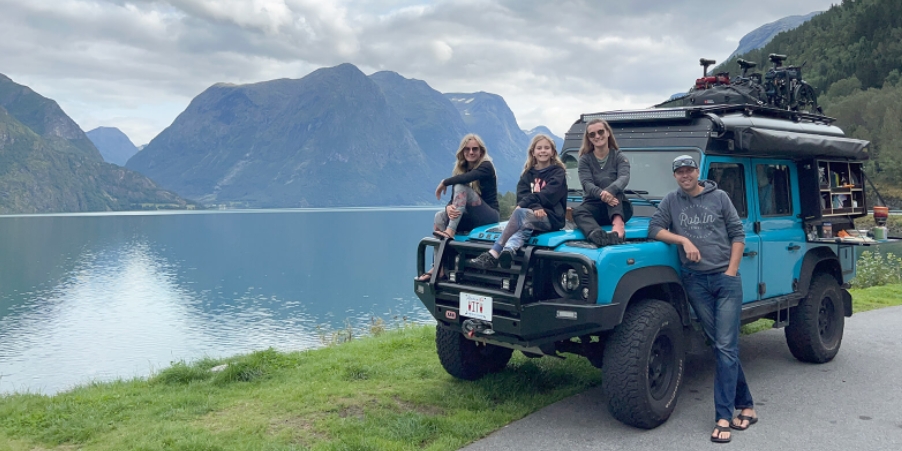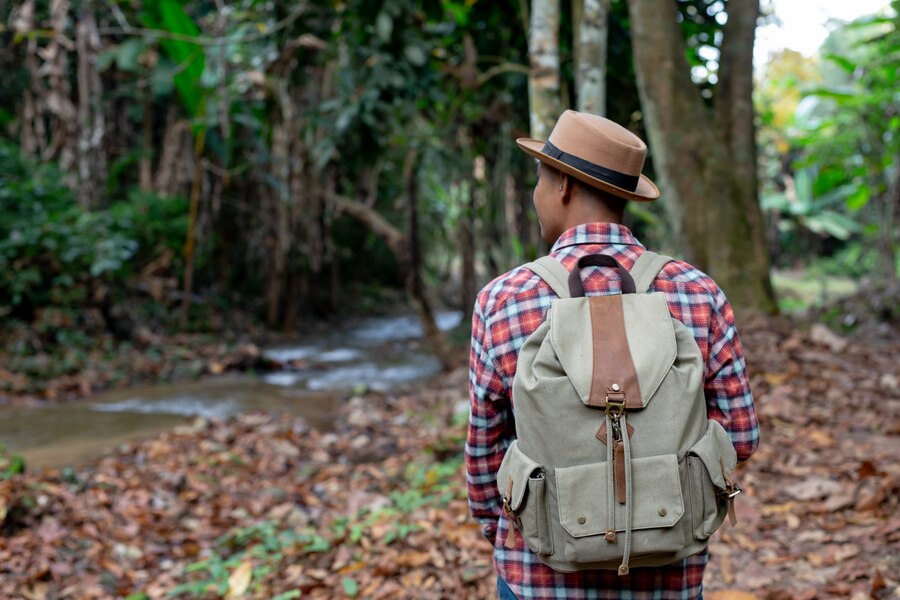Are you looking for a fun family activity? There is nothing better than spending time in nature’s wilderness. From hiking to enjoying the serenity of the surroundings, you can have a gala time with adults and kids. But why take the whole trip a notch up and travel in a small overlanding trailer?
This sounds chaotic, but it is a learning experience for families living apart to come together and learn new things about each other. Those unfamiliar with the concepts of a small overlanding trailer and its features can learn all about it here. You will also get some exciting tips for traveling with your family in such a small space. Let’s dive in.
What is a Small Overlanding Trailer?
A small overlanding trailer is an off-road vehicle built for journeys into the most remote and challenging terrains. Unlike other mediums like RVs and conventional trailers, a small trailer is specifically designed to be robust, lightweight, and agile.
Key Features of a Small Overlanding Trailer
Small overlanding trailers might vary in specifics based on the manufacturer and model, but they all share a few traits that set them apart from other kinds of trailers:
Off-Road Capability:
A compact overlanding trailer is built to withstand the rigors of off-road travel. They feature durable construction and robust suspension systems that can easily handle uneven terrain, rocky trails, and creek crossings.
Compact Size:
As the name suggests, small overlanding trailers are characterized by their compact size, making them well-suited for maneuvering through tight spaces and accessing remote campsites that may be inaccessible to larger vehicles.
Lightweight Construction:
Small overlanding trailers are typically constructed from lightweight materials such as aluminum or fiberglass to reduce strain on the towing vehicle and improve fuel efficiency. This allows for easier towing and reduces the risk of accepting in soft or muddy terrain.
Off-Grid Capability:
Some overlanding trailer equipped with features that enable self-sufficiency and off-grid living, such as built-in water tanks, solar panels, and auxiliary battery systems. These amenities allow travelers to enjoy extended periods of camping without the need for external hookups or amenities.
Versatile Interior Layouts:
Despite the compact size, small trailer often boast cleverly designed interior layouts that maximize space and functionality. Features such as fold-down beds, modular furniture, and multi-purpose storage solutions efficiently use every square inch.
Best Tips When Traveling with Kids in Small Trailer
Before planning to travel with kids, there are ample things that you need to keep in mind, especially if you are traveling in a small trailer. So, here are a few tips that you should take a look at for making your journey hassle-free:
- Choose the Right Trailer:
Selecting a small overlanding trailer suitable for family travel is paramount. Look for multiple sleeping areas, ample storage space for gear and supplies, and sturdy construction that can withstand rough terrain. Consider factors like weight capacity, towing compatibility with your vehicle, and amenities like a kitchenette or bathroom facilities.
- Prioritize Safety:
Safety should always be the foremost reason when traveling with children. Ensure your trailer has proper safety restraints for all passengers, such as seat belts or harnesses. Teach your children about the importance of staying seated while the vehicle is in motion and establish clear rules for behavior inside and outside the trailer.
- Pack Wisely:
Space is limited in a small trailer, so efficient packing is essential. Prioritize items necessary for safety, comfort, and convenience. Pack multiple layers of clothing for changing weather conditions, along with essential gear such as first aid supplies, camping equipment, and cooking utensils. Consider lightweight, compact items that serve multiple purposes to maximize space.
- Create a Comfortable Sleeping Arrangement:
Sleeping arrangements can be challenging in a small trailer, especially with multiple family members. Consider investing in bunk beds or convertible furniture for your compact overlanding trailer. Be sure to pack bedding suitable for varying temperatures, and consider portable fans or heaters for climate control.
- Plan Kid-Friendly Activities:
Keep your children engaged and entertained during long stretches of travel by planning kid-friendly activities. Bring books, games, puzzles, and art supplies to stimulate their minds and encourage creativity. Take advantage of opportunities for outdoor exploration, such as hiking, fishing, or wildlife spotting, to keep them active and engaged with nature.
- Maintaining a Routine:
Maintaining a routine can help children feel secure and comfortable while traveling. Stick to normal meal times, bedtimes, and daily routines as much as possible, even while on the road. Establishing familiar rituals, such as reading bedtime stories or cooking meals together, can provide stability amidst the overlanding adventure.
- Embrace Flexibility:
Flexibility is essential when traveling with children, especially in a small trailer with constrained room and amenities. Be ready to modify your plans according to your family’s requirements and preferences. Keep an open mind about impromptu detours, surprising discoveries, and weather or terrain changes that can cause you to modify your plan.
Conclusion:
Traveling with kids in a small overlanding trailer presents its own set of challenges. Still, you can beat all the chaos and have fun with your loved ones. Plan carefully, and do not let the holiday spirit fade away. Create eternal memories amidst the wonders of the outdoors.





